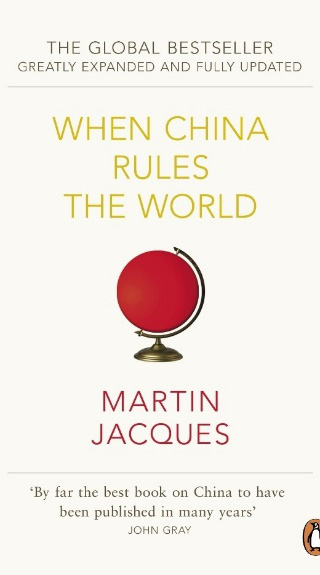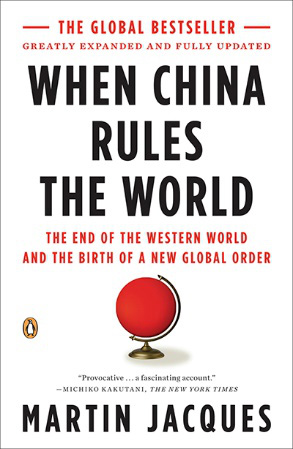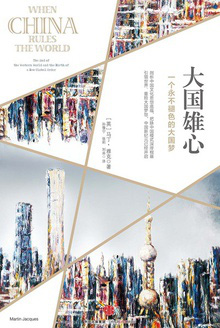
Starmer’s China visit likely to signal a shift in the mood music
Keir Starmer’s visit to China is the first by a UK prime minister for eight years and marks a major shift in the UK’s attitude towards China
Read moreHK has a golden opportunity to think a fresh and reinvent itself
Hong Kong has a huge chance to renew itself: to become an integral part of the Great Bay Area, to establish a new kind of identity, and develop much closer ties with ASEAN and East Asia more widely.
Read moreChina is deeply wedded to the idea of civilizations, and the diversity of civilizations
The notion of civilization and civilizational inheritance, shared by China and the Global South, including India, will be one of the central tenets of international relations in a new global order.
Read moreUN at 80: Still Vital Amid U.S. Friction and China’s Push for Reform
Martin Jacques argues that the UN remains the most representative platform for global dialogue but must be reformed to reflect today’s realities. He warns that any retreat by the US by the UN would harm global cooperation. He welcomed China’s consistent support for UN agencies and multilateralism.
Martin Jacques on China’s military parade
Martin Jacques discusses what role the military parade play in helping societies remember the past.
Produced by CGTN Europe.
Recommended
Martin Jacques on China’s military parade
Martin Jacques discusses what role the military parade play in helping societies remember the past.
Produced by CGTN Europe.
Civilization state versus nation-state
This article was the most read article in April 2020. The original copy was published on the 15th January, 2011. The embedded video is extracted from an interview with Fu Xiaotian on Talk with World Leaders (Phoenix TV) on the 18th June, 2020
China confronts Europe with an enormous problem: we do not understand it
China confronts Europe with an enormous problem: we do not understand it. Worse, we are not even conscious of the fact. We insist on seeing the world through our Western prism. No other tradition or history or culture can compare. Ours is superior to all and others, in deviating from ours, are diminished as a consequence. This speaks not of our wisdom but our ignorance, an expression not of our cosmopolitanism but our insularity and provincialism. It is a consequence of being in the ascendant for at least two centuries, if not rather longer. Eurocentrism – or perhaps we should say western-centrism – has become our universal yardstick against which, in varying degrees, all others fail. (more…)
Read moreHong Kong: The crisis that needs an end
Martin Jacques speaks forthrightly on the crisis in Hong Kong and what needs to be done.
Produced by T-House for CGTN.
China, The Philippines and a New World Order
Martin Jacques delivered the Keynote Speech, titled ‘China, The Philippines and a New World Order’, at a special conference organised by the Chamber of Mines of the Philippines to a specially invited audience of leading government, media, business figures, and ambassadors, in Manila on 10 September 2019.
Watch the interview below:
Beginnings of a New World Order: The Rise of China
Martin Jacques delivered the Keynote Speech, titled ‘Beginnings of a New World Order: The Rise of China’, at This is Tomorrow, a Symposium organised by the University of Bath Institute for Policy Research (IPR).
The session was chaired by Professor Nick Pearce, and held 12 September 2019 at Arts Lecture Theatre, The Edge, University of Bath.
Video copyright held by the University of Bath.
Duterte’s ‘pivot to China’
Martin Jacques joins Karen Davila on ANC Headstart to talk about the ongoing US-China trade war, China’s handling of the situation in Hong Kong and why he thinks President Duterte’s pivot to China is the right decision.
Watch the interview below:
Chinese governance highly distinctive, remarkably effective
Martin Jacques discusses Chinese governance with People’s Daily Online on 5 July 2019.
Watch the interview below:
Why is the US moving toward a new Cold War against China?
Martin Jacques discusses the West’s fear of China’s progress, its transformed position on the world stage, and what kind of great power it will become. One-to-one interview with Liu Xin on The Point (CGTN) on 22 May 2019.
Watch the interview below:
TED Talk: Understanding the Rise of China
This hugely successful TED talk in London has now had over 4 million views. Martin Jacques asks: How do we in the West make sense of China and its phenomenal rise?
Can the West’s democracy survive China’s rise to dominance?
The following article by Martin Jacques was a contribution to the debate on the Economist website on the theme ‘Should the West worry about the threat to liberal values posed by China’s rise?’
For long the West has thought that history is on its side, that the global future would and should be in its own image. With the end of the cold war and the implosion of the Soviet Union, this conviction became stronger than ever. The future was Western; nothing else was imaginable. Of course, already, well before the end of the cold war, in 1978 to be exact, China had started its epic modernisation such that, in the annals of history, 1978 will surely prove to be a far more significant year than 1989. During China’s rise, hubris continued to shape the West’s perception and understanding of China. As the latter modernised it would become increasingly Western, it was supposed: Deng’s reforms marked the beginning of the privatisation and marketisation of the Chinese economy—its political system would in time become Western, otherwise China would inevitably fail.
Read moreLet’s celebrate reform’s 40th anniversary
The following article by Martin Jacques appeared in China Daily, 20th January 2018.
As momentous historic events go, China’s reform period was relatively unheralded. Little did anyone realise at the time – probably no one, in fact – that 1978 would enter the history books as one of the most important years in modern history.
We should not be surprised. At the time, the Chinese economy was a mere one-twentieth of the size of the US economy, with a per capita GDP roughly on a par with that of Zambia, lower than half of the Asian average and lower than two-thirds of the African average. China’s impact on the world was very limited, even in East Asia. (more…)
Read moreMartin Jacques on China: 8 part video series
Part 1: How does China’s global outlook differ from the West’s?
‘The idea of a common future, or a sense of shared destiny, has become a very powerful theme of Chinese foreign policy’
In Part 1 of Martin Jacques on China (presented by CGTN), Martin Jacques explains China’s growing influence on the world stage, and considers why its global outlook is so different to that of Western countries. (more…)
Read morePrescient author now rules the roost
17/11/17, China Daily, all editions worldwide
1/12/17, Daily Telegraph

Martin Jacques, the journalist and academic, is now seen by many as the man of the moment in China.
Click here to access PDF of the full article, published in China Daily on 17th November 2017. The article was written by Andrew Moody.
One to One Interview with Martin Jacques
On October 19th, Martin Jacques did this one-to-one interview on China in Washington DC with Anand Naidoo, the host of The Heat, CGTN America’s flagship current affairs programme.
Part One:
Part Two:
Upcoming Events
-
21 April 2023
Panellist: New Development of China, New Opportunities for the World
Lanting Forum on Chinese Modernisation and the World
Shanghai
-
4 April 2023
Keynote speech: ‘A decade of the Concept of Building a Community based on a Shared Future for Mankind’
Forum on ‘Community with a shared future for mankind’
RDCY
Renmin University
Beijing
-
3 April 2023
Keynote speech: ‘Modernisation 3.0: A New Challenge and a New Mentality’
Wenzhou Entrepreneurs Forum
Wenzhou Business College
Wenzhou
-
29 March 2023
Panellist: The Chinese Path to Modernisation.
Boao Forum for Asia Annual Conference
Boao, Hainan



